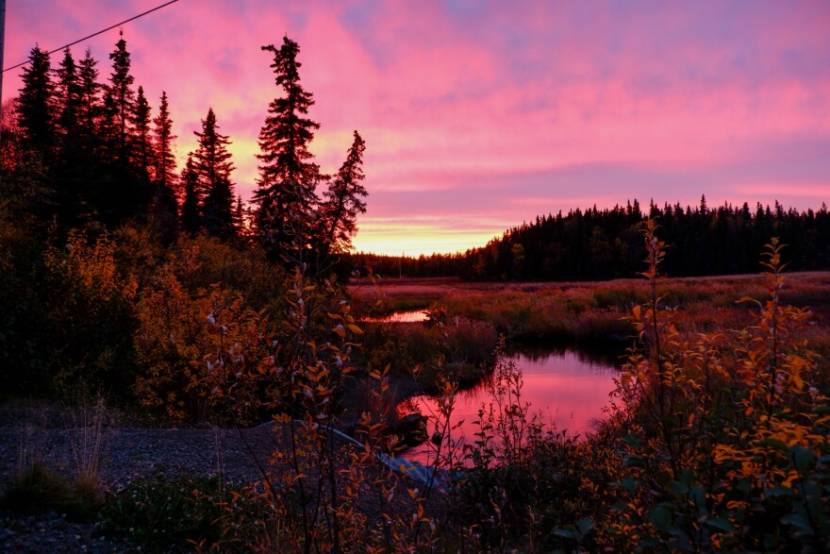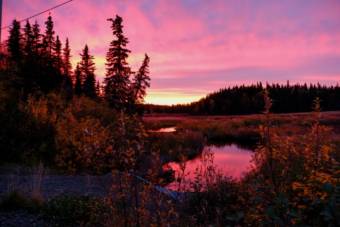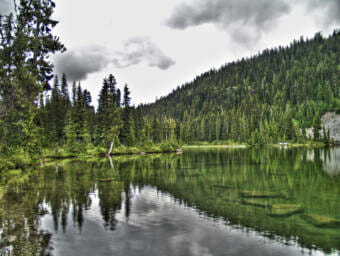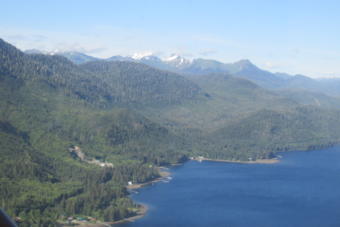
Twenty-six places in Alaska received a new name Thursday as part of the Interior Department’s initiative to remove a derogatory word for Indigenous women — a change that affects nearly 650 sites and geographic features across the country.
The official name change process has been almost a year in the making. In November 2021, Interior Secretary Deb Haaland unveiled an order to remove the word “sq—,” a slur for Native women, from federal lands. Many Indigenous organizations, including the Alaska Federation of Natives and the Native American Rights Fund, supported Haaland’s initiative.
“I feel a deep obligation to use my platform to ensure that our public lands and waters are accessible and welcoming. That starts with removing racist and derogatory names that have graced federal locations for far too long,” Haaland said in a prepared statement Thursday.
Some Alaska Native groups worked with the Interior Department to suggest replacement names for different places. For example, the Curyung Tribal Council in Dillingham met with Interior to recommend renaming a local creek Amau Creek, which includes the Yugtan word for great-grandmother, to honor the community’s strong female ancestors. Three local girls pushed to change the creek’s name, prompting debate in the community, months before Haaland’s order.
Curyung Tribal Council First Chief J.J. Larson applauded the department for implementing the council’s suggested name.
“It gives me hope that we’re moving in the right direction as a society, that our government is listening to us — it’s not just giving us a direction and saying, ‘This is what you have to do,’ ” Larson said.
In the Native Village of Eagle in eastern Interior Alaska, a local mountain has been renamed Jëjezhuu Tr’injàa Mountain at the Eagle Village Tribal Council’s request.
“I’m very happy. I think that’s such an amazing accomplishment for our village,” said Native Village of Eagle First Chief Karma Ulvi. “Our tribe is able to name a mountain that has been a derogatory name for so long and actually respect and honor Native women with the name that we chose.”
Other geographic features received new names suggested by the Interior Department, such as Crystal Creek in the Yukon-Koyukuk Census Area. The creek’s name was derived from the nearby Crystal Peak.
Similar renaming decisions had previously applied to two other derogatory terms, one for Black Americans and another for people of Japanese descent.
Haaland said in her November secretarial order mandating the name changes that the slur for Native women “is no less derogatory than others which have been identified and should also be erased from the National landscape and forever replaced.”
Though many Alaska Native people welcome the removal of the offensive word, some saw missed opportunities to prioritize Indigenous languages and engage tribal organizations proactively in the process.
“I’m definitely happy with the result,” Larson said. “I do think that the process could be better. I mean, that is usually always the case that the process could be better. I think taking a little bit more time and reaching out — sometimes a faster process is not always better.”
The Interior Department’s removal of derogatory place names reflects a broader local, statewide and national effort to restore place names to their Native roots.
In 2015, Interior restored the name of Denali, previously Mount McKinley, to reflect the Koyukon Athabascan word for the mountain. A year later, voters in the city of Barrow decided to change the community’s official name to Utqiaġvik, its Iñupiaq name.
To broaden the search for offensive place names on public lands, Interior launched an Advisory Committee on Reconciliation in Place Names in August to identify other place names to change.
Kiana Carlson, who is Ahtna and from the Native Village of Cantwell, is the lone Alaska Native on the 17-person committee.
Carlson applauded Interior’s initiative to remove the pejorative word for Native women from place names. She said she hopes to find other names “that aren’t as obvious, but that are just as derogatory and racist.”
“I think a lot of people don’t realize the words, or the derogatory nature of things until they’re made aware of the history,” Carlson said. “Once they’re made aware of the history, they’re super supportive of changing it.”
The advisory committee will convene two to four public meetings annually to review potential name changes. As the federal government seeks to change more place names, Carlson said she hopes the advisory committee members can do more targeted outreach with their home states.
“I think we’ll definitely streamline the process to have those people within the community itself making decisions, and not just a committee that doesn’t have any affiliation going to go talk to the tribes,” Carlson said of the advisory committee.



